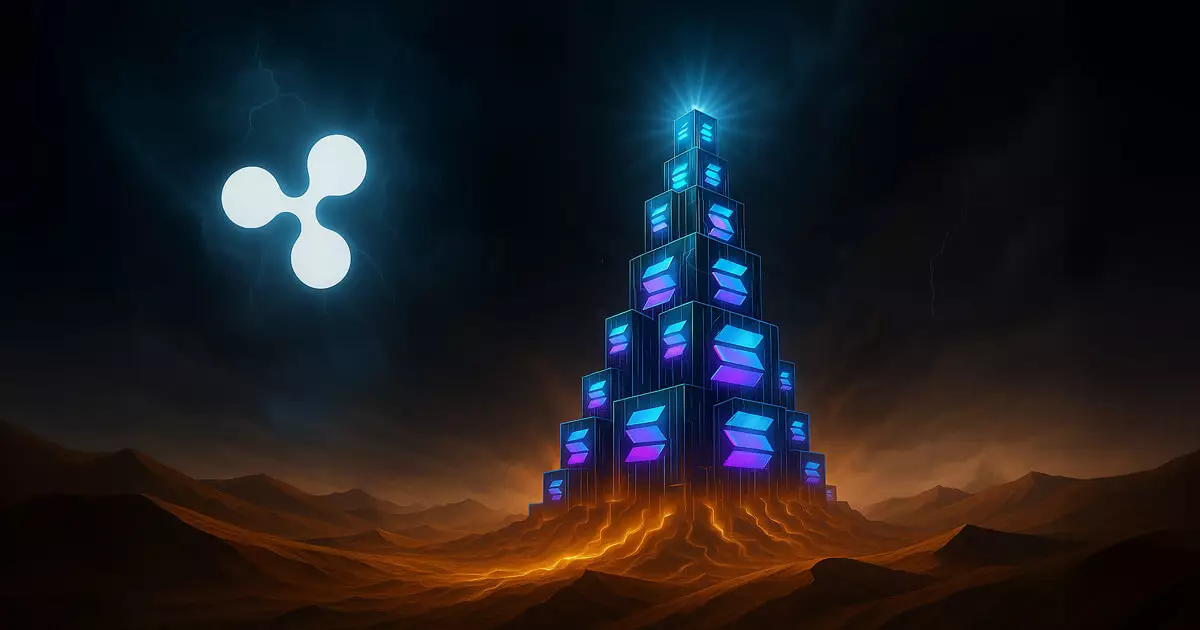In a bold maneuver to claim its position as a preeminent global crypto hub, Dubai is taking significant steps to integrate blockchain technology into its economic fabric. The partnerships formed with major players such as Solana and Ripple are not just strategic collaborations but a clear indication of Dubai’s intent to pioneer the digital asset landscape. This reaffirms the UAE’s broader mission: to position itself at the forefront of technological advancement in finance.
Collaboration is at the heart of Dubai’s strategy. The agreement between the Solana Foundation and Dubai’s Virtual Assets Regulatory Authority (VARA) epitomizes this. By establishing frameworks for educational initiatives and sharing economic insights, Dubai is effectively creating a conducive environment for blockchain developers. These ties foster an ecosystem characterized by innovation, where both regulatory compliance and creative experimentation can thrive. It’s a synergy that showcases not only Dubai’s ambition but also its practical approach to nurturing talent and expertise in emerging technologies.
Ripple’s Groundbreaking Stablecoin Approval
Equally pivotal is Ripple’s recent milestone with its US dollar-backed stablecoin, RLUSD, which has garnered the backing of the Dubai Financial Services Authority (DFSA). This approval is not merely regulatory red tape; it signifies an undeniable progression towards mainstream acceptance of digital currencies. For Ripple, obtaining such recognition propels its position within the Dubai International Financial Centre (DIFC) and internationally, highlighting the region’s intent to attract serious players in the digital finance arena.
The implications of RLUSD’s approval extend well beyond Ripple itself. With thousands of DFSA-licensed firms in the region, the introduction of a stablecoin with regulatory acknowledgment opens a floodgate of possibilities for businesses looking to enhance their payment systems. The rapid pace of digitization in the Middle East feeds this interest, suggesting that a powerful shift towards digital asset integration within various sectors is imminent.
The Impending Impact on Traditional Finance
The rise of digital assets in Dubai is set to challenge traditional financial paradigms significantly. By fostering these crypto-friendly regulations, Dubai is not merely keeping pace with international trends; it is actively seeking to overhaul how financial transactions are perceived and executed. Businesses of all sizes are increasingly exploring opportunities in digital asset payments and custody solutions, indicating an essential realignment of how the financial world operates.
In this transformative environment, those resistant to change risk being left behind. The forward momentum toward blockchain adoption should serve as a wake-up call. Traditional finance institutions must adapt or face the prospect of obsolescence. Dubai is crafting a narrative of disruption and innovation, which serves as an inspiring model for other nations striving to modernize their financial frameworks.
While the developments in Dubai are undeniably promising, one must also approach them with measured optimism. The path to a fully integrated digital economy is fraught with challenges, including regulatory hurdles, security concerns, and the need for widespread education. It remains to be seen whether other regions can emulate Dubai’s enthusiasm and strategic foresight effectively.
As Dubai pushes the envelope, it beckons the world to consider the limitless possibilities of a digital future. Transformational as it may seem, the journey toward crypto dominance is just beginning—a journey that must encompass collaboration, innovation, and, quite importantly, a robust regulatory framework to ensure sustainable growth in a rapidly evolving financial landscape.

